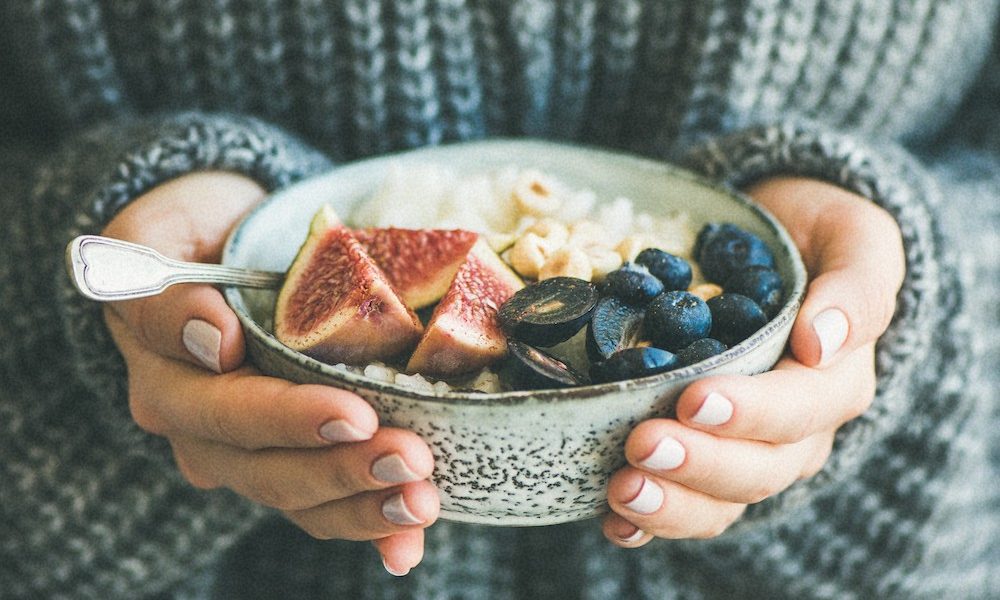When did the act of nourishing our bodies get so complicated? Remember the underlying foundation of what you’re doing it for: caring for your body so you can do more of what you love.
BY: LIZ BRINKMAN, RD
In the age of intermittent fasting, the ketogenic diet, and clean eating, we are often left with a feeling of total confusion and complete fear about what and how to eat.
In my two decades of working as a dietitian nutritionist, I’ve seen diet fads come and go and come again (sometimes sneakily changing their names). Folks show up to my office looking for answers. I welcome them in, offer them a comfy seat, softly close the door, look them right in the eyeballs and say,
“You are safe here.”
Okay, I don’t exactly say that, but I want to. Actual conversation starters usually begin with a form of: “Tell me about your relationship with food, the diets you’ve tried, and food rules you are trying to live up to.”
It’s not just at work. I’m constantly met with the question of “What are we supposed to be eating?” from friends and even strangers.
Just the other day in the cereal aisle a woman said, “I need fiber, but I heard gluten is bad. What even is gluten?!”
I just gave her a symbolic side hug by saying, “All the messages are so confusing! What sounds good?”
If you’re confused about food, you are not alone.
Despite being trained in the art of nutrition science, I feel the same way – daunted, faced with a mountain of information to sift through to figure out what really matters.
And quite honestly, we don’t have time for that. Our time is precious, folks. We need to save our energy for bigger things like digging through the toy box to find the precious pacifier at nap time, combing through backpacks for permission slips to sign, and scrutinizing the candidates in upcoming elections. And, more importantly, we need to focus our brainpower on making this world a kinder, fairer, safer place.
Take heart, I’ve done the sifting for you and here’s what shook out. It’s called ‘nutrition as self-care’.
Not “nutrition for gut health” or “nutrition for losing belly fat”. Nutrition as self-care can help cut through the noise of diet culture because it is compassion-centered and resilience-enhancing. It makes space – at the table, in your brain, and heart. Here’s how to start.
1. I’M DONE WITH DIETING, NOW WHAT?
Eat at regular intervals throughout the day. Include food that:
- Sounds good to you.
- Matches your hunger.
- Feels good in your body.
- You have the time and skill to prepare.
- You can safely store.
- Fits your budget.
You are stepping onto solid ground and finding your bearings here. This is an especially important starting place if you don’t experience hunger cues and are learning to come back to your body. You are saying to your body, “I’ve got you. You can trust me.”
2. I’M EATING REGULARLY, FEELING NOURISHED, AND NOTICING MY BODY’S CUES, NOW WHAT?
This next step of nutrition as self-care focuses on forming an alliance with your body and healing your relationship with food. Here is where you start to add variety and balance to meals and snacks based on signals your body is giving to you. Meal and snack choices should make your life bigger, not smaller.
This is the place where you show up with curiosity and ask: “How does eating Takis and a Golden Eagle Frost at every meal make me feel?” Also, “How does eating a grilled chicken breast and steamed broccoli at every meal make me feel?” And, maybe, “Is McDonald’s so bad?” You get the point: don’t discriminate.
Your choices will be informed by your culture and experience – let that be your guide, always. Your body knows, she holds memories. Start there.
What are your favorite foods from childhood before you were touched by diet culture? Newsflash: Diet rules are asking you to erase your past and ignore what makes you you. Fight back with stories and memories.
3. THERE ARE EXTERNAL FACTORS COMING INTO PLAY, NOW WHAT?
Sometimes there are real-life conditions that could make eating or limiting specific foods or food groups important. For instance, constipation. Focusing on drinking plenty of liquid and increasing the amount of soluble fiber can offer real solutions for bowel regularity.
This is also the phase where a gluten-free diet would fit if you have an allergy to gluten. Here is where the assistance from a dietitian, nutrition health coach or healthcare professional is imperative.
But know this – even in this phase, there is still room for flexibility and grace. This is where you especially need to treat yourself with compassion and reframe nutrition as self-care.
Remember, diets aren’t the boss of you. Food is meant to nourish. Reframing nutrition as self-care makes space for a new and fuller way to live. You don’t have to wait to participate in this life.
It can begin right now.
Adapted from the original post.
Liz Brinkman, RD is a private practice dietitian who runs a Phoenix-based nutrition practice, through which she sees clients both locally and virtually. Specializing in Intuitive Eating and eating disorder recovery, Liz’s mission is to empower women to find healing and hope as they navigate the chaos of diet culture, and reconnect with the answers they already have within. When she’s not working, you can find Liz at her dining room table surrounded by family, neighbors and friends. Whether playing Uno, helping with homework, or sharing a meal, her hope is that people push back from the table feeling more restored, anchored, and accepted than when they sat down. Learn more and connect with Liz at Liz Brinkman Nutrition.

